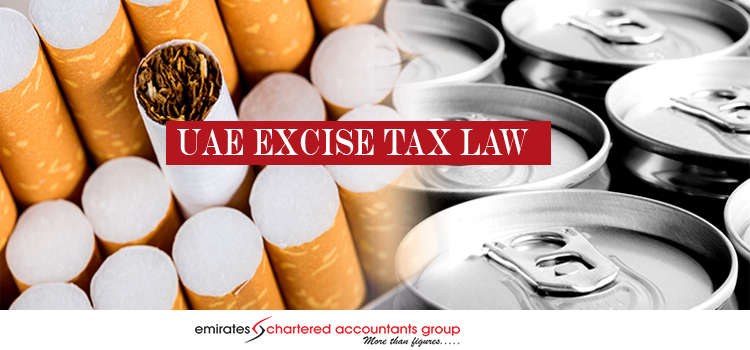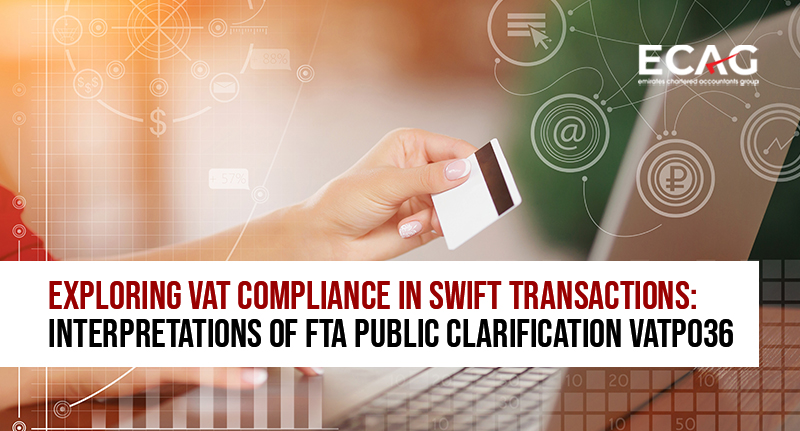
UAE Excise Tax Law- An Overview
Excise Tax will be introduced in the fourth quarter of 2017 of the year 2017 in the United Arab Emirates, under the framework of the unified agreement between the GCC countries. The other GCC Member States also aim to implement Excise Tax by the end of 2017. The UAE MoF has approved the UAE tax Procedure Law in the month of March 2017. However, it is expected to publish the UAE Excise Tax Law by the third quarter of the year 2017. In the month May 2017, the MoF has done a briefing on the UAE Excise Law and some of the key points discussed are summarized here below:
Why is Excise Duty imposed on selected goods?
Excise Tax is generally imposed on goods luxury items or goods that are considered harmful to humans or to the environment. In the UAE, Excise Tax will be charged on tobacco, tobacco products, energy drinks and carbonated beverages etc. The registration under excise tax will be started in the Q3 of the year 2017. If the businesses in the taxable sectors are not registered latest by the end of the year 2017, there will be a penalty under the relevant provisions of the Act. The introduction of the Excise Tax will achieve two objectives of the Government Policies
- to raise Government revenues
- to discourage the consumption of goods considered harmful to health or the environment.
Excise tax rates 100% on tobacco products & energy drinks. 50% on carbonated beverages.
When will excise tax be charged?
Excise Tax is normally charged only once in the supply chain in any of the following situations: During production OR During Import OR During sale of the goods Since it is charged generally when the products are released for consumption, the Excise Tax is collected from the producer, manufacturer or importer of the selective goods to the extent that they are released for consumption. In some instances, the Excise Tax is refunded to avoid situations where Excise Tax is collected two times in one supply chain. (e.g., Excise Tax will be due on both the import of raw tobacco and once the tobacco has been manufactured into cigarettes).
Method of Charging Excise Tax
There are two methods of charging Excise Tax on goods.
- At specific rate on the quantity. Here excise taxes are charged by quantity regardless of price, i.e., per unit, pack, or kilogram.
- At ad valorem basis. Here excise taxes are charged as a percentage of the value of the product: Eg:If 100 kg of taxable products is sold @ AED 100/kg and if the tax rate is 50%, the excise tax will be AED 5,000 [ 100kgX AED 100/ X 50%].
The levy of Excise Tax in the GCC will be on the ad valorem basis.
Excise tax compliance
Excise Tax collected is to be paid to the tax authorities within the time limits prescribed as per the Law. In the case of locally produced goods, the producer or manufacturer of goods is required to remit the Excise Tax to the tax authorities before removal of goods from the place of production or factory.
In the case of goods imported into the country, the importer is responsible for remittance of Excise Tax to the tax authorities before removal of goods from the customs area. The Excise Tax returns are to be filed electronically; on a monthly basis. The amount is to be paid to the UAE FTA within 15 days of this filing.
Conclusion
The Excise Tax is different and separate from the Value Added Tax (VAT) of 5%. VAT will be likely to be implemented in the UAE with effect from 1st January 2018. However, the UAE Excise Law is likely to be effective in the year 2017.
Looking for TAX Services in the UAE?
We provide:
- Tax Agent’s Service
- VAT Return Filing
- VAT Service
- VAT Registration
- Excise Tax Service
- VAT Deregistration
For Tax Services in Dubai:
Mr. Pradeep Sai
sai@emiratesca.com
+971 – 556530001
For Tax Services in Abu Dhabi:
Mr. Navaneeth
nav@emiratesca.com
+971 – 558892750
For Tax Services in Northern Emirate (Sharjah, Ajman, RAK, Fujairah)
Mr. Praveen
praveen@emiratesca.com
+971 – 508873115





